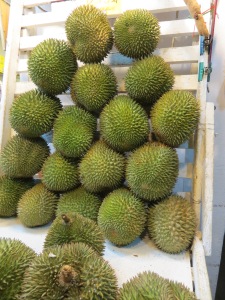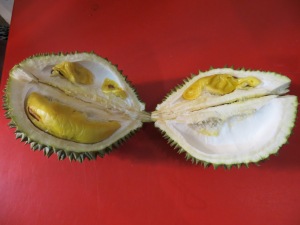Today I’m privileged to post some of the cross-cultural insights of fellow blogger and writer Lauren S. Power. I first met Lauren at FIGT ’15 as a fellow PPWR. Her perspectives after having lived in Japan and Singapore are unique, and she paints beautiful pictures of global living.
“It is better to learn from the mistakes of others than it is to make mistakes yourself,” a wise old man once told me. I believe that. I even have proof that what he said is true.
When I was about 5 years old, my parents were trying to impress upon me the importance of good dental health. My Dad told me that if I didn’t brush my teeth, they would turn black and fall out just like my grandfather’s. I saw horrible visions of Grandpa’s gap-filled grin and few mustard yellow stumps (the product of a questionable implant job in Mexico) taking the place of my pearly whites. I vowed that that fate would never be mine. I formed good habits and stuck to them. To this day, I have never had a cavity.
Apart from my textbook dental hygiene practice, I have made plenty of mistakes. Mistakes are unavoidable, especially when traveling or moving to new countries. However, I’m cautious person, and my risks are usually carefully calculated. I really do listen to advice. I like to do research and I care about the experiences of others. After all, the more information you have in making a decision, the better the decision. Some mistakes, you can’t undo.
That is why, when I moved to Singapore, I did not try durian.
The King of Fruits has quite a reputation. Its odor has been compared to rotten fish, smelly feet, and sewage. It is said that the smell travels over great distances and lingers for many hours after, which is why it is illegal to take durian into public buildings or on any public transportation in Singapore.
I have had ample opportunities to sample its odorous bouquet around the city, as most roadside fruit stands are laden with durians. I have also given durians a thorough visual inspection. They are big – about the size of an American football – and heavy. A single durian weighs on average 2.5 kg (about 5lbs), but there have been durians recorded as heavy as 14kg (about 30lbs). Deaths occur from falling durian in an around orchards in Southeast Asia. They are viciously spiky, necessitating the use of industrial-grade gloves for the durian handlers. If ever there were a fruit less inviting, I’m sure I can’t imagine it.
“Its taste can only be described as…indescribable, something you will either love or despise. …Your breath will smell as if you’d been French-kissing your dead grandmother,”[1] Anthony Bourdain, food and travel expert and lover of durian famously said.
Yet, people queue up at prestigious durian stalls, willing to pay up to $100 for a choice fruit. There had to be something to recommend it. Given the smell, the look, and the price, my internal calculus told me that it wasn’t worth the risk to try durian myself. More research was needed. I decided to do an unofficial poll of locals and foreigners to get more perspective.
“I used to hate durian when I was a child,” Dmitry told me. “I had to eat many before I found the right one.”
“Yes, sometimes you have to wait for that one durian that can open your mind,” Michelle agreed.
“The first time I tried durian, I thought I was going to vomit,” Kathleen said. “Now, I buy them all the time.”
“No, I’ve never tried durian. There’s no way I’d eat that! The smell…” said Courtney.
“Honestly, I don’t think I’ll ever buy it again,” Nick confessed. “I’m not sure it was the worst thing I’ve ever eaten, but it has to be close.”
“You have to try only good durian,” Jeremy said. “If you get a bad one, you can’t stand it lah! But the uncle may try to cheat you because he can see you are ang mo. So, you have to watch him to make sure he gives you the good one.”
How do you tell a good durian from a bad one? They all smelled rotten to me. I certainly didn’t want to be given a bad durian just because I was a foreigner. It seemed like too much trouble. Too many people had had awful experiences. Though my curiosity would continue to be piqued every time I passed a whiff of rotten onions mixed with old gym socks coming from a fruit stand along the street, I erred on the side of caution and kept walking.
Two and a half years after moving to Singapore, my guide appeared.
“You know, right now is durian season,” my friend, Michelle said. Michelle is from Malaysia and grew up eating durians, which makes her an authority on the subject, as far as I’m concerned. She informed me that there was a reputable durian stand just down the street. We decided to try it out.
As luck would have it, we arrived as the durian handlers were returning with a fresh batch of durians. A heavy, foul stench preceded them, but they were smiling. Michelle ordered a small Mau Shan, the highest grade of durian.
As we took our seats on the sticky red plastic stools, small gnats buzzed around the exposed light bulb above us. The uneven brick sidewalk was wet from the humidity. When the durian handler placed our opened fruit before us, I felt like my lungs had been coated with the underside of a compost heap. Obviously, I’d need to burn the clothes I had on – they’d never truly be clean again.
Michelle reached inside a pod to grasp a corpse-colored lump of flesh with her bejeweled blue nails. Creamy yellow custard dripped down her finger where she pierced the outer membrane. The smell was suffocating. I either needed to eat or leave… or pass out.
Quickly, I plucked a small, mucous-like glob from the pod and popped it in my mouth. I did not vomit. And magically, the smell disappeared. It was as if a really strong cheese had the consistency of pudding. It was like mango mixed with garlic and blue cheese salad dressing. The texture and taste was unlike anything I’d ever had and nothing at all like a fruit. I actually finished my portion of the durian. Honestly, it is not my favorite dish, but I wouldn’t mind eating it again. I’m glad I tried it.
As you experiment with new cultures, locations, and foods, do be cautious. Be curious. Be excited. Do your research, ask questions, and listen. Learn from the experiences and mistakes of others, but don’t be afraid to make your own. If you take a risk, you may not get the thrill you seek, but you will likely gain a sense of accomplishment in the knowledge that you tried.
[1] “Anthony Bourdain tries out durian in Indonesia”. Anthony Bourdain: No Reservations. Season 2. Episode 12. 2006-06-19. Travel Channel. Video from YouTube. Retrieved on 2015-05-16
Lauren is a Texas native who has lived in the UK, Japan, and Singapore. As an independent writer and researcher, Lauren uses her involvement with Southeast Asian institutes and think tanks as inspiration for the social, economic, and political themes in her work. To view Lauren’s work, visit www.laurenspower.com



